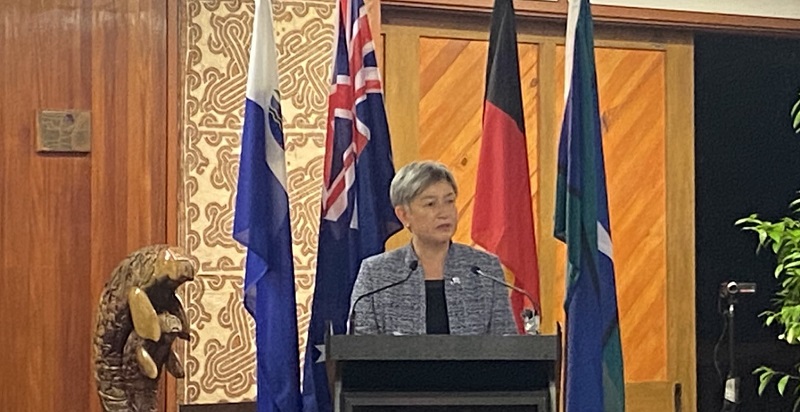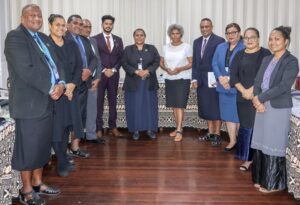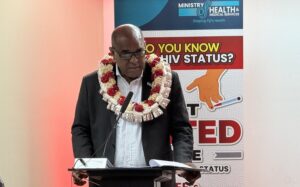Australia announced sweeping changes to its foreign policy in the Pacific, chief among these is taking action on the climate crisis by reducing its emissions and increasing its use of cleaner energy sources, heralding a new era of engagement in the region in a manner the country’s new Foreign Minister Penny Wong says will be respectful of each island nation’s sovereignty “that doesn’t come with strings attached nor impose unsustainable financial burdens.”
The assurances by Senator Wong at the Pacific Islands Forum headquarters in Suva last night come on the heels of assertions about the motives of the visit which coincides with the visitation by her Chinese counterpart Wang Yi to several countries in the region including Fiji this week, starting in the Solomon Islands where it signed a number of bilateral agreements including a security pact.
Visiting the Pacific on her fourth day as Australia’s Foreign Minister, Wong reaffirmed the new administration’s commitment to working with PICs in dealing with shared challenges and achieving shared aspirations together.
“I was Australia’s first-ever climate minister, and I know the imperative we all share to take serious action to reduce emissions and transform our economies. Nothing’s more central to the security and economies of the Pacific. I understand that climate change isn’t an abstract threat; it’s a present and existential one,” Wong said.
“This is a different Australian government and a different Australia. And we will stand shoulder to shoulder with you, our Pacific family, in response to this crisis.
Wong announced several initiatives underscoring the new Australian Government’s commitment including:
- To enshrine in law its pledge to reduce emissions by 43 percent by 2030 and reach net-zero by 2050. Furthermore, it will submit a new nationally determined contribution to the UNFCCC very soon.
- Transition to a low carbon economy and move to cleaner and cheaper energy
- Increase the proportion of renewable energy in Australia in its National Energy Market to 82 percent by 2030.
- Australia-Pacific climate infrastructure partnership to support climate-related infrastructure and energy projects in Pacific countries and Timor Leste.
- Reinstate the role of Australia’s Ambassador for Climate Change
- Proposed a bid to co-host a future UN conference of the Parties with Pacific Island countries.
- Improve working conditions for Pacific workers in Australia
- Allow workers to bring their families – create the Pacific engagement visa to provide a pathway to permanency for 3,000 members of Pacific families per year.
- Deepen defense and maritime cooperation
- Increase Australia’s overseas development assistance to the Pacific by $525 million over the next four years
- Remove barriers to the participation of women and girls in recognition of Pacific women’s role in the recovery and economic development of PICs
- Implement the Uluru Statement in full – voice, treaty, truth.
- And enshrining an Indigenous voice in parliament in this term of government.
- Appoint Australia’s inaugural First Nations Ambassador who will lead a new office in the Department of Foreign Affairs and Trade.
- Work to enhance the role and position of First Nations peoples both at home and abroad.
- Increase support for media training and capacity-building across the Pacific.










